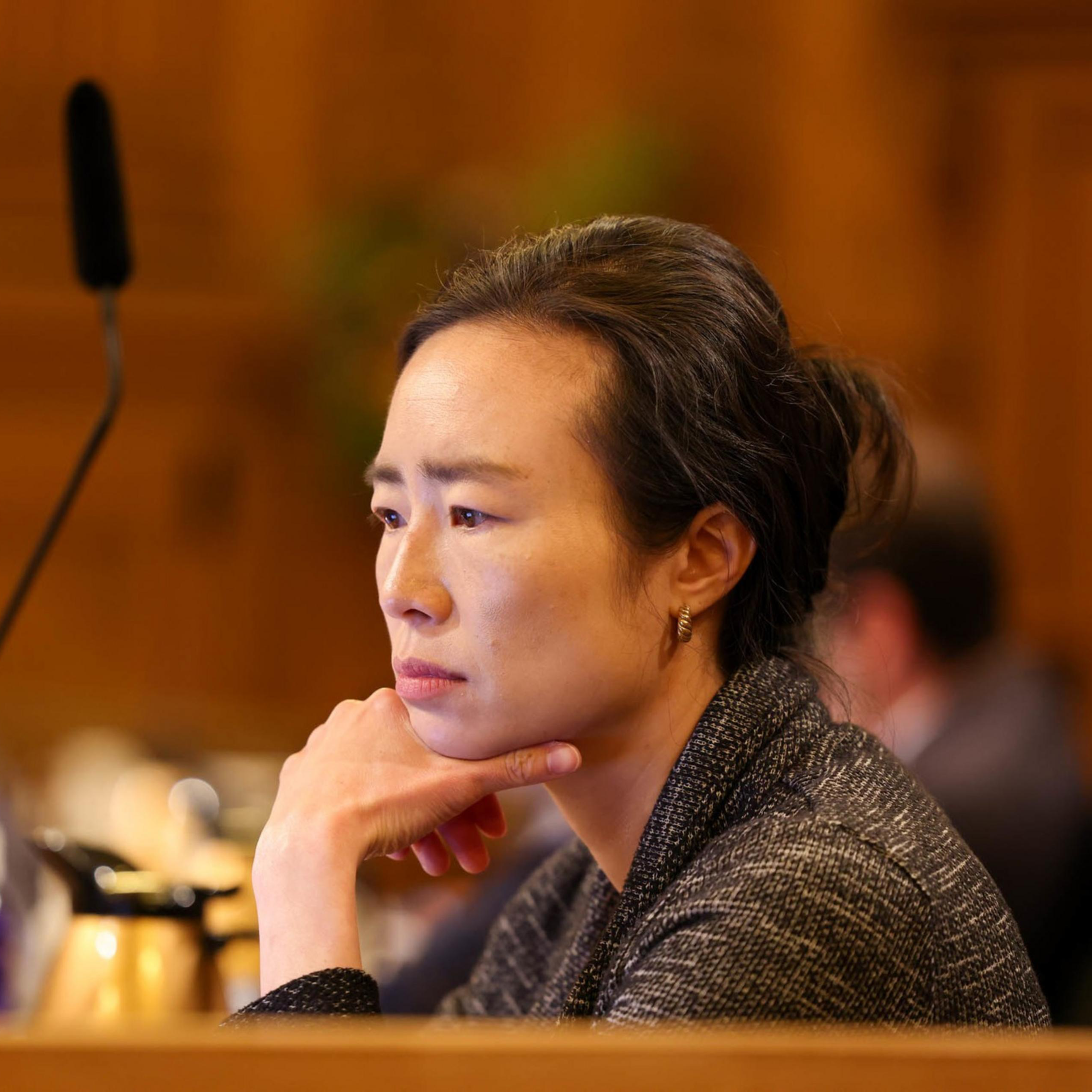San Francisco supervisors debated Mayor Daniel Lurie’s “family zoning” plan during an hours-long hearing on Monday, when they presented a list of changes they’d like to see before they authorize his vision for tens of thousands of new units in the city.
The Land Use and Transportation Committee’s hearing was the first time supervisors have considered Lurie’s rezoning proposal, which has sparked an intense fight over where San Francisco should prioritize development amid a severe shortage of housing and skyrocketing rents. The plan could help San Francisco meet a state mandate to add housing capacity in the city over the next several years, most notably in west-side and northern neighborhoods.
Several supervisors took the opportunity to submit amendments to the proposal, which range from minor to moderate changes to the plan. Lurie’s proposal is still expected to pass the full, 11-member Board of Supervisors when it’s up for a vote in the coming months. But the suggested amendments highlight the work ahead for Lurie to finalize one of his most important policy goals of the year.

Supervisor Myrna Melgar, who chairs the committee, introduced an amendment that would exempt a large segment of rent-controlled buildings from Lurie’s plan. “I am keenly aware that families need a place to go,” said Melgar, who is often considered a swing vote between the board’s moderate and progressive blocs. The mayor last week said he supported (opens in new tab) Melgar’s suggested change.
Supervisors Stephen Sherrill and Danny Sauter, both moderate allies of Lurie, put forth amendments that focus on spurring development of two- to three-bedroom units. Sherrill acknowledged that the mayor’s proposal won’t instantly fix the city’s housing shortage. “Rezoning is just one step,” he said. “Much more will be needed.”
Lurie’s current proposal would modify zoning rules to allow for buildings up to 10 stories along some transit-rich west-side commercial corridors that city officials have identified as prime areas for more development. Other parts of the city, including in northern commercial neighborhoods, could see even taller buildings.
YIMBY advocates have endorsed the plan, while progressive organizations and neighborhood preservationists have raised concerns about protecting affordable housing and low-income tenants from displacement. The supervisors’ proposed changes on Monday were aimed at addressing all those concerns.
Board President Rafael Mandelman, another moderate who has aligned himself with Lurie, proposed stronger protections for historic buildings. “I think we can grow and create the housing capacity we need and still preserve our heritage,” he said. “I think the great cities of the world have done that.”

Meanwhile, opponents of the mayor’s rezoning plan, including progressive Supervisors Chyanne Chen and Connie Chan are pushing amendments that they said will safeguard low-income residents. Chen said she would like to ensure the city’s less wealthy areas, which include neighborhoods in the Bayview and Mission neighborhoods, earn an exemption from rezoning.
“I believe the path to meeting our state housing obligations is not simply a math problem,” said Chen. “If we rezone without an affordability strategy, we run the risk of not actually solving the housing affordability crisis.”
Chan’s changes include bolstering protections against demolitions and the establishment of a “shot clock” for developers to speed up housing production.
San Francisco faces pressure from the state to pass a qualified plan to build more or face severe penalties that include yanking millions of dollars for affordable housing and transportation. The city must make room for 36,000 new units of housing under the state’s mandate.
Lurie has argued that more development will lead to lower housing prices, while his progressive opponents see the rezoning as a boon for developers that could lead to an erosion of affordable housing options.
While Monday’s hearing was only a first review of Lurie’s plan, more than 100 residents packed into the board’s chambers to express their support or concerns, which required setting up overflow seating.
Before the meeting, critics held a news conference in front of City Hall to protest parts of Lurie’s proposal. The group included progressive activists, historic preservationists, and union members, including Rudy Gonzalez, secretary-treasurer of the San Francisco Building and Construction Trades Council; Lori Brooke, a candidate for District 2 supervisor; and Albert Chow, who is considered a potential replacement for the open District 4 supervisor seat.
“This isn’t anti-development, it’s pro-neighborhood,” said Brooke, who is challenging Sherrill in 2026 to represent District 2, which includes neighborhoods traditionally opposed to more development, such as the Marina and Presidio Heights. “We believe in building real housing for real people, not luxury towers for absentee owners.”
The city faces a January deadline to receive state approval of the plan. If a blueprint is rejected, the city could see a Sacramento takeover of its housing plans, which Lurie and others supporting his proposal warn would be far more sweeping than the current option.

